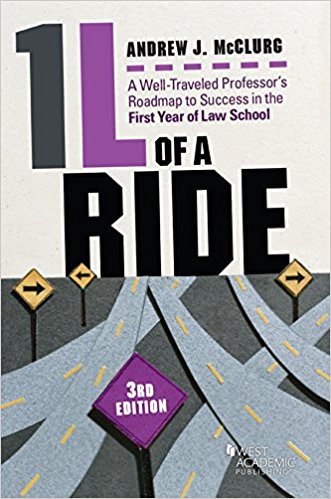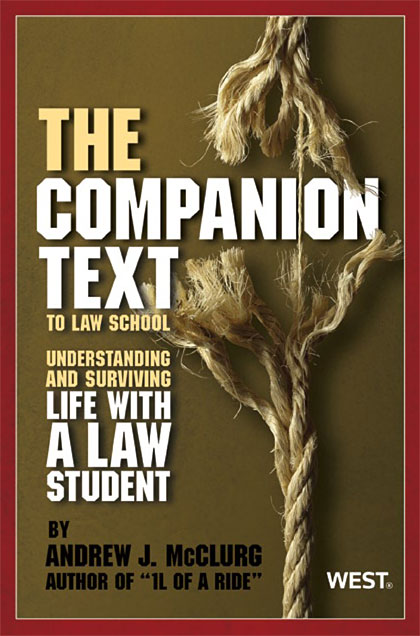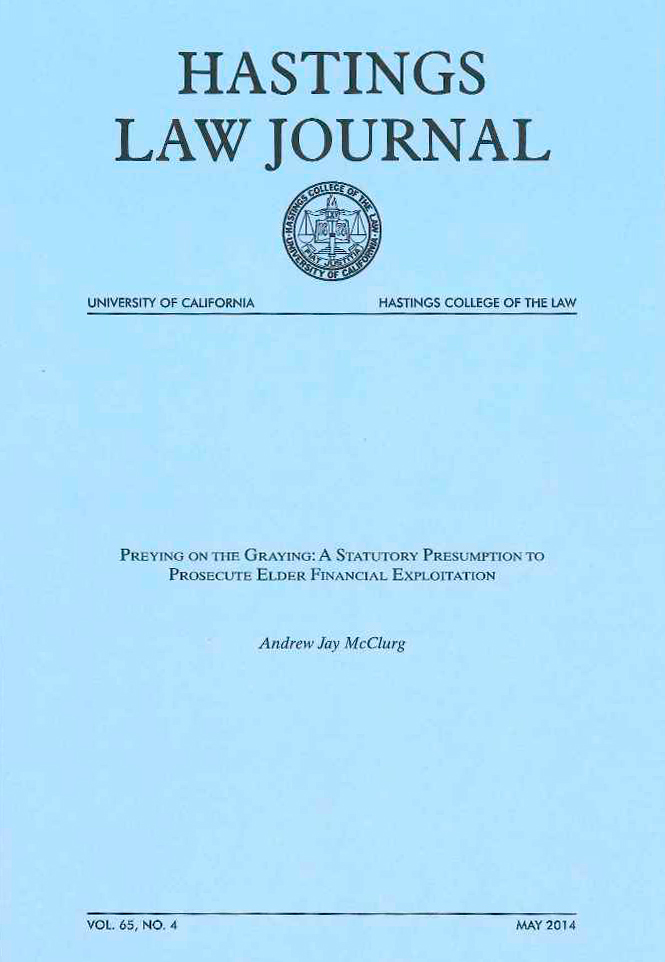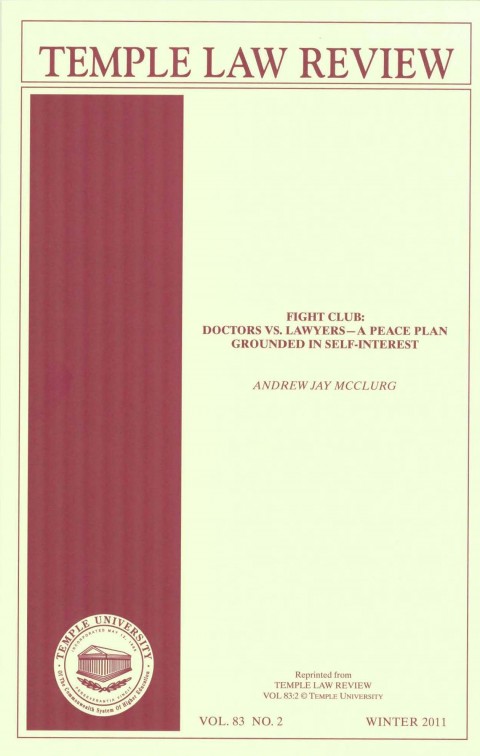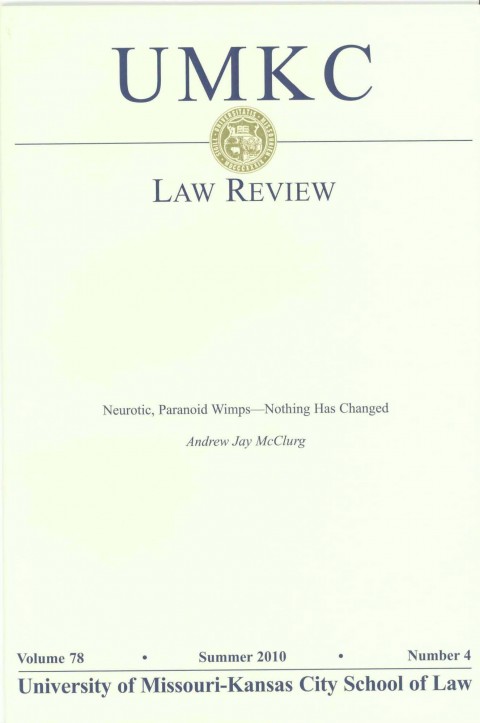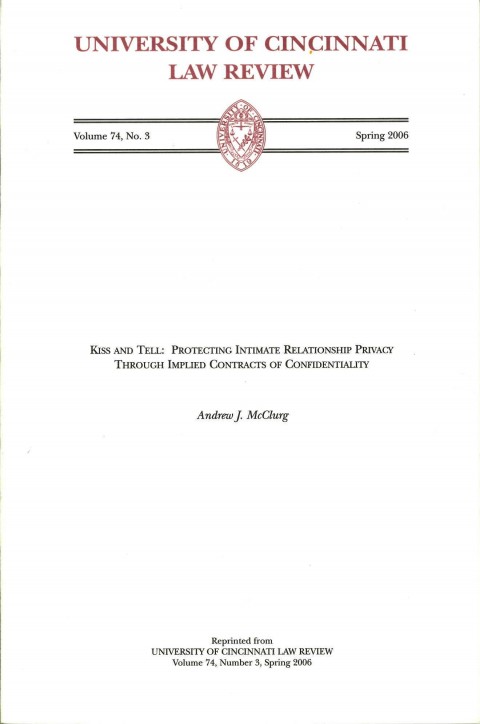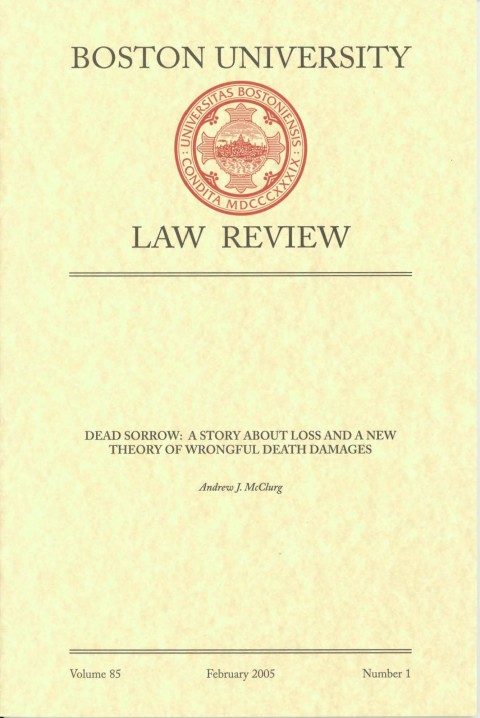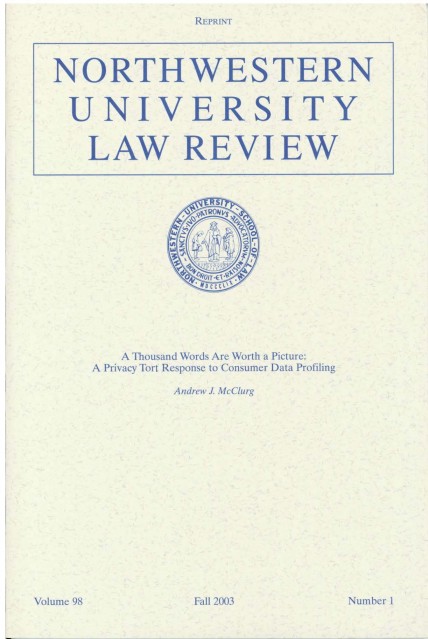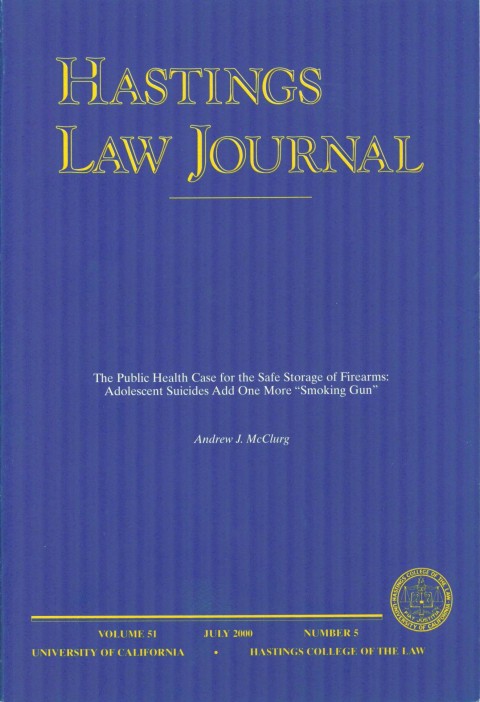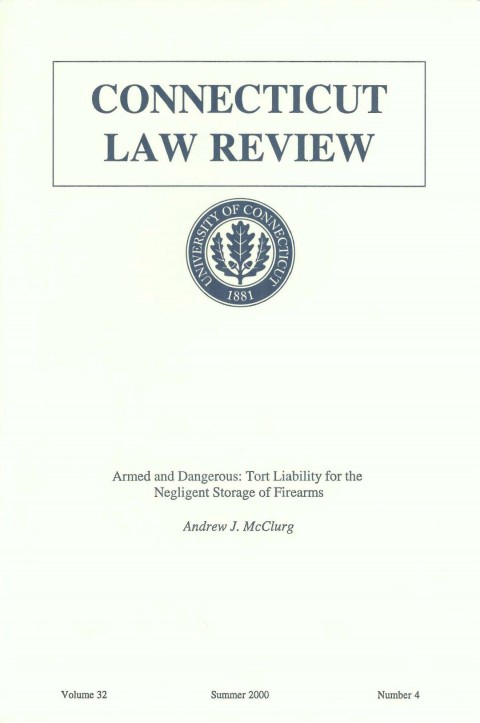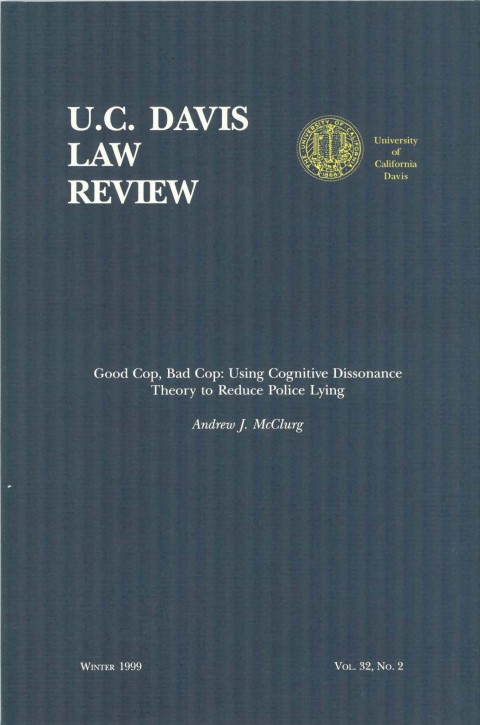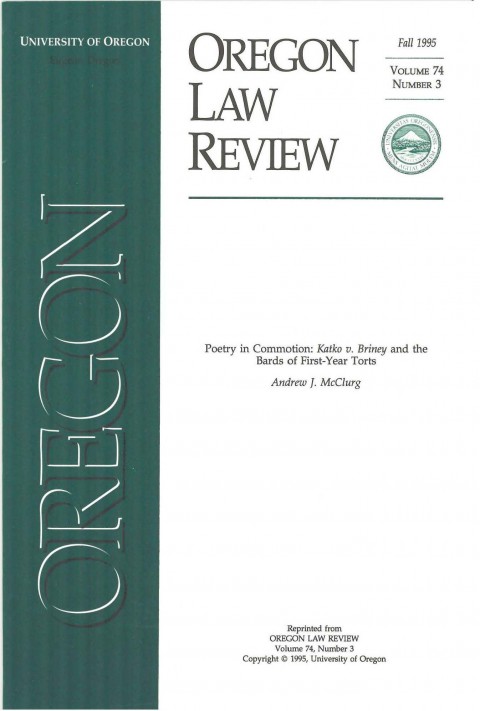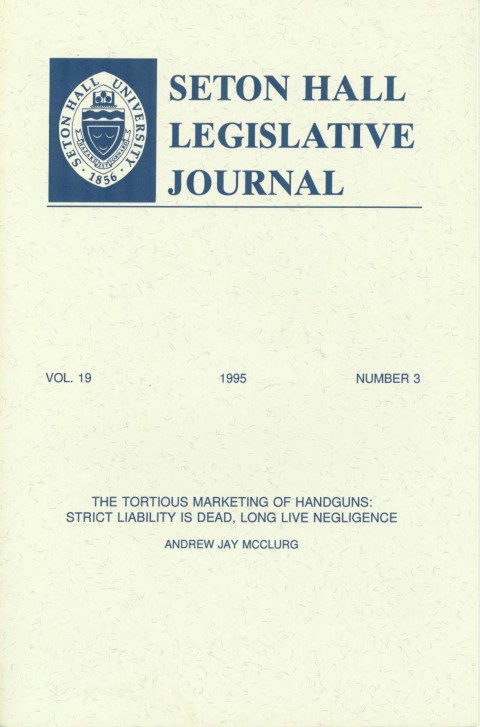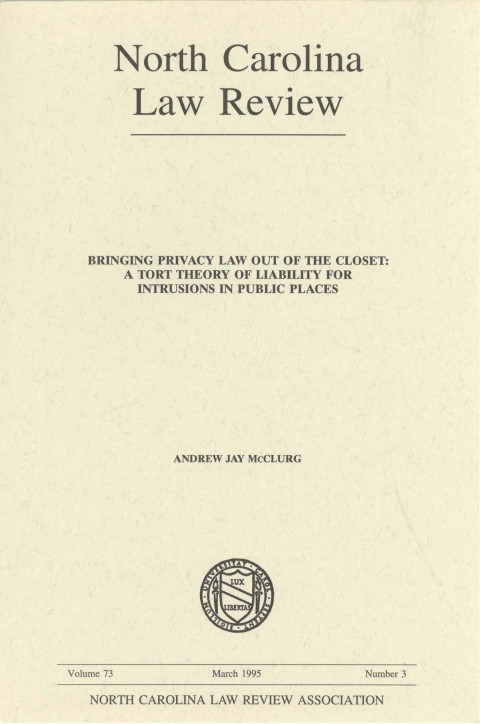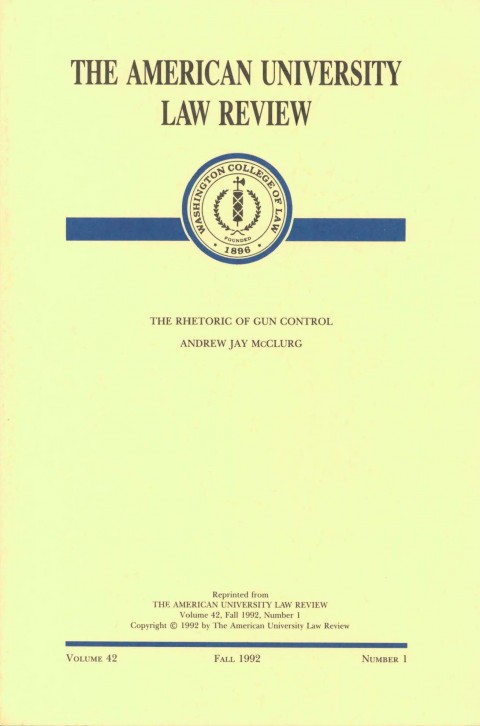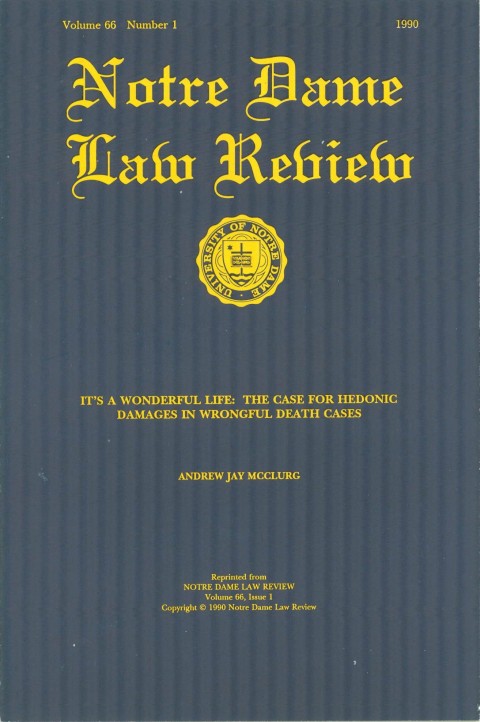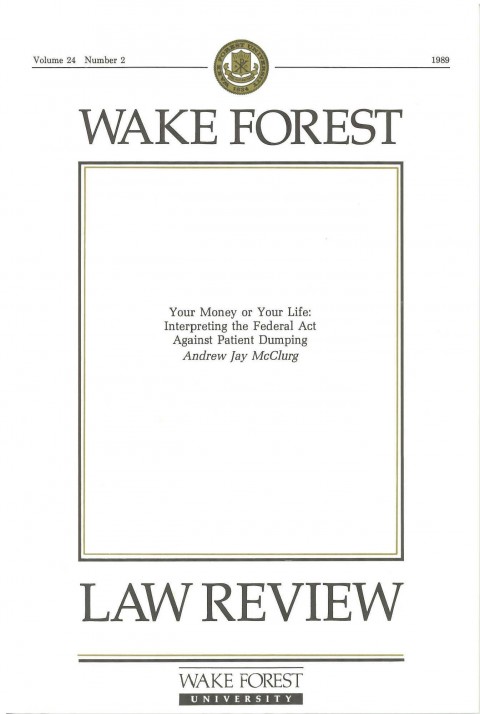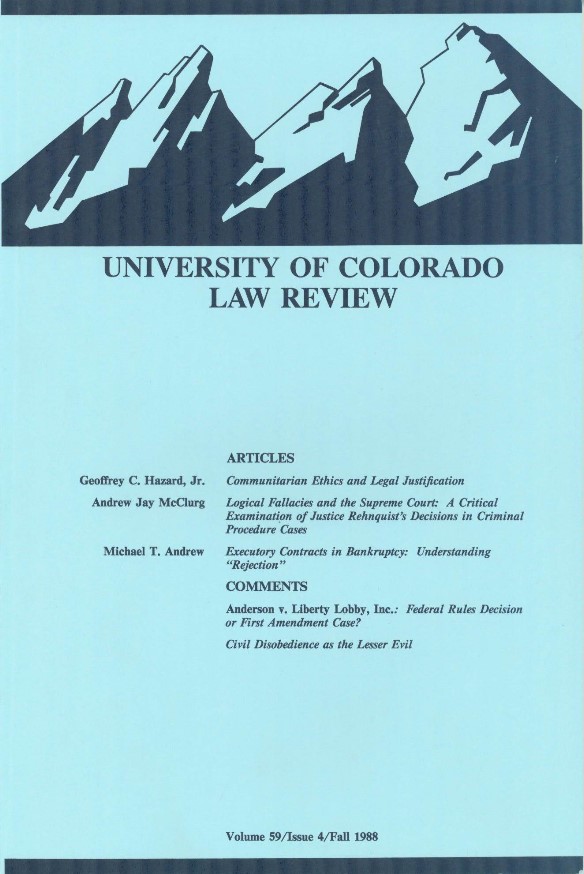November 14th, 2011 In Brown v. State, Judge Randall Evans, Jr. not only wrote one of the earliest in the long line of rhyming judicial opinions, he did it for a good reason. As he explained in a footnote:
This opinion is placed in rhyme because approximately one year ago, in Savannah at a very convivial celebration, the distinguished Judge Dunbar Harrison … arose and addressed those assembled, and demanded that if [I] ever again was so presumptuous as to reverse one of his decisions, that the opinion be written in poetry.
This back story puts the opinion a cut above the usual rhyming opinion. You gotta love a judge who
Read more…
November 13th, 2011 
Things weren’t looking good for the defendant in State v. Stagno after getting pulled over by a state trooper. With a blood alcohol level of .197 and two DUI convictions in the past ten years, he almost certainly would’ve lost his driver’s license if he’d been driving his friends to the topless bar in his car. But thanks to a drunken bet made earlier in the evening,
Read more…
November 13th, 2011 In U.S. v. Ramirez Lopez, the defendant was convicted of smuggling aliens into the U.S. from Mexico. One died during the journey due to inclement weather. When border patrol agents interviewed fourteen members of the group, two of them said the defendant was the guide of the expedition while the other twelve exculpated him, denying he was the guide.
The government deported nine of the twelve exculpatory witnesses back to Mexico prior to trial and the trial judge denied admission of the government’s interview notes with them.
It’s fair to say Judge Kozinski was unimpressed by the fairness of the procedure. He began his dissent from the affirmance of the
Read more…
November 13th, 2011 It’s actually pretty hard to get disbarred as a lawyer, as opposed to reprimanded or suspended, maybe harder than it should be. But with enough effort, it can be done, as shown in a 2010 case where the Kansas Supreme Court disbarred a lawyer after what it called repeated episodes “of rude, disruptive, and at times criminal, misconduct.”
According to the court’s findings (the lawyer disputed the facts), these incidents included:
1. Yelling at a court clerk to tell a prosecutor “to get his ‘ass’ in the courtroom,” telling the clerk he was smarter than anyone in the clerk’s office, and telling all the clerks present that
Read more…
November 13th, 2011 
Andrew Jay McClurg, Fight Club: Doctors vs. Lawyers―A Peace Plan Grounded in Self Interest, 83 Temple Law Review 101-58 (2011).
Doctors and lawyers have been at odds since the first medical malpractice “crisis” occurred in the mid-nineteenth century. As one professor said, it is axiomatic these days that “doctors hate lawyers,” which is curious in one sense given that social psychology “liking” research suggests they should get along well in light of their similar backgrounds and socioeconomic status.
Their modern fight plays out publicly in a variety of forums, principally the national tort reform movement. Like professional wrestlers, the fighters sometimes resort to dirty tactics. It is
Read more…
November 13th, 2011 
Andrew Jay McClurg, Neurotic, Paranoid Wimps―Nothing has Changed, 78 University of Missouri-Kansas City Law Review 1049-61 (2010).
In an issue of the UMKC Law Review devoted to “1L Stories” and intended as a tribute to Scott Turow’s classic book, One L, the author recounts his own first-year tales of neurotic, paranoid wimpism (descriptors from Amazon.com reviews of Turow’s book). Turow wrote the foreword for the issue.
The author’s narrative asserts that a dominant theme of One L, the story of Turow’s first year at Harvard Law School, was negative affect. Turow talked of anxiety, fear, stress, panic, vulnerability, self-doubt, shame and grief, wounded self-esteem, unhappiness, paranoia, embarrassment,
Read more…
November 13th, 2011 
Andrew J. McClurg, Kiss and Tell: Protecting Intimate Relationship Privacy Through Implied Contracts of Confidentiality, 74 University of Cincinnati Law Review 887-940 (2006).
In today’s tell-all world, where anyone with internet access can become a “media outlet,” growing numbers of people are finding themselves the victims of former intimate partners who mass disseminate private, highly embarrassing information, including photos and videotapes, about or involving them.
In theory, tort law provides the perfect (and exclusive) remedy when one gives widespread publicity to embarrassing, non-newsworthy private facts about a person in a manner that reasonable persons would consider highly offensive. In practice, however, this claim—known as the tort of
Read more…
November 13th, 2011 
Andrew J. McClurg, Dead Sorrow: A Story About Loss and A New Theory of Wrongful Death Damages, 85 Boston University Law Review 1-51 (2005).
This “scholarative”–combining personal narrative and traditional doctrinal scholarship–tells the story of a personal loss as a prelude for arguing for a new theory of wrongful death damages.
When a tortiously caused death occurs, five losses/injuries result: (1) the decedent’s life itself; (2) the trauma and bereavement suffered by the decedent’s survivors, collectively referred to in this article as “grief;” (3) the pecuniary value of financial and service contributions that the decedent could have been expected to make to his or her dependents; (4)
Read more…
November 13th, 2011 
Andrew J. McClurg, Sound-Bite Gun Fights: Three Decades of Presidential Debating About Firearms, 73 University of Missouri-Kansas City Law Review 1015-45 (2005).
In recent years, both major political parties have shied away from discussing gun control and gun rights during the presidential election cycle.
But it wasn’t always been that way. To the contrary, with all of the important issues affecting America and Americans—taxes, budget deficits, foreign policy, unemployment, abortion, energy policy, the environment, education, poverty, health care, terrorism, Social Security and Medicare, nuclear disarmament and proliferation, tort reform, big government, equal rights and others—gun control has been one of the most frequently asked-about subjects over the twenty-eight
Read more…
November 13th, 2011 
Andrew J. McClurg, Book Review: Joyce Lee Malcolm, Guns and Violence: The English Experience, 47 American Journal of Legal History 507 (2004).
Joyce Lee Malcolm’s Guns and Violence: The English Experience offers both an interesting history of guns and gun laws in England and a policy polemic that attempts to establish, through the English experience, that strict gun laws do not reduce violent crime. As explained in this book review, Malcolm’s book succeeds better as history than as advocacy.
Malcolm took on a big challenge in attempting to trace the history of guns and crime in England from medieval times to the present. She pulled it off admirably, constructing
Read more…
November 12th, 2011 
Andrew J. McClurg, A Thousand Words Are Worth a Picture: A Privacy Tort Response to Consumer Data Profiling, 98 Northwestern University Law Review 63-144 (2003).
Private companies collect and aggregate thousands of items of information about individual consumers with a view toward compiling a “complete 360-degree view” of a consumer’s life. Concerns over shrinking privacy in a data-driven economy have prompted several ingenious proposals from scholars to regulate the field of information privacy.
This article discusses each of those approaches, including the potentially insurmountable obstacles they face, and opts for a tort response to invasive consumer data profiling. Specifically, it argues that collecting and selling an extensive
Read more…
November 12th, 2011 
Andrew J. McClurg, Armed and Dangerous: Tort Liability for the Negligent Storage of Firearms, 32 Connecticut Law Review 1189-1245 (2000).
Overwhelming evidence shows that high percentages of American gun owners negligently store their firearms, leaving them easily accessible to unauthorized, dangerous users. Public health studies show that millions of guns are kept loaded and unlocked. More than 50 percent of all handguns are stored unlocked. Ammunition is stored unlocked in between 30–40 percent of gun-owning households. Millions of children live in homes with loaded, unlocked firearms.
The author has argued in other articles for safe gun storage laws as a way to reduce accidental shootings, adolescent suicides, and
Read more…
November 12th, 2011 
Andrew J. McClurg, The Public Health Case for the Safe Storage of Firearms: Adolescent Suicides Add One More ‘Smoking Gun’, 51 Hastings Law Journal 953-1001 (2000).
This article argues for passage of safe gun storage laws as a means of reducing adolescent suicides.
Millions of loaded and unlocked firearms sit in homes throughout America, easily accessible to unauthorized, dangerous users. Public health research, including ten studies discussed in this Article, shows that astonishingly high percentages of gun owners negligently store the most dangerous consumer product legally obtainable. Unsecured guns invite firearms tragedies of all types.
The author has previously argued for safe gun storage laws as a
Read more…
November 12th, 2011 
Andrew J. McClurg, Child Access Prevention Laws: A Common Sense Approach to Gun Control, 18 St. Louis University Public Law Review 47-78 (1999).
Fifteen states have Child Access Prevention or “CAP” laws that make it a crime for a gun owner to store a loaded firearm in a manner in which he knows or reasonably should know a child may gain access to the weapon.
This article asserts that CAP laws are a reasonable and feasible way to reduce a variety of gun-related harms. CAP laws do not constitute “gun confiscation” or, as a newspaper editorial asserted, “a cynical attempt to cancel a constitutionally guaranteed right.”
Basically, a
Read more…
November 11th, 2011 
Andrew J. McClurg, Good Cop, Bad Cop: Using Cognitive Dissonance Theory to Reduce Police Lying, 32 University of California-Davis Law Review 389-453 (1999).
This article argues that lessons from the social psychology field of cognitive dissonance theory can be applied to create a successful police integrity training and mentoring program, one that matches rookie officers with cadets still in training at the police academy as a way to perpetuate honesty as an intrinsic police value and prevent good cops from turning bad.
Cognitive dissonance is the tension that arises when one holds two conflicting beliefs or believes one way and then acts another. Dissonance is strongest when
Read more…
November 11th, 2011 
Andrew J. McClurg, Poetry in Commotion: Katko v. Briney and the Bards of First-Year Torts, 74 Oregon Law Review 823-48 (1995).
A classroom incident involving Katko v. Briney, the famous Iowa “spring-gun case,” started the author thinking about the suffocating environment legal education imposes on original expression.
Law school offers virtually no outlets for creativity, which is curious given the substantial reservoir of brain power collected in law schools and the fact that good lawyers must be creative thinkers. Students generally have only two avenues for expressing themselves within the institutional framework: their classroom comments and their written products.
Many law professors like to believe they foster
Read more…
November 11th, 2011 
Andrew Jay McClurg, The Tortious Marketing of Handguns: Strict Liability is Dead, Long Live Negligence, 19 Seton Hall Legislative Journal 777-820 (1995).
The author is credited by legal scholars for helping create the tort theory of “negligent marketing” claims against handgun manufacturers. In this article, arguing that strict liability was a failed theory, he asserts that victims of gun violence should refocus their sights on the more prosaic liability theory of common law negligence. In his words, it is time to “go back to basics.”
The article advances three different negligent marketing theories for suing handgun manufacturers: (1) negligence in marketing unusually dangerous weapons such as assault
Read more…
November 10th, 2011 
Andrew Jay McClurg, Bringing Privacy Law Out of the Closet: A Tort Theory of Liability for Intrusions in Public Places, 73 North Carolina Law Review 989-1088 (1995).
“Public privacy” sounds like an oxymoron, but this article asserts a tort theory to enforce just such a right under limited circumstances. Traditionally, courts have refused to recognize a right to privacy in a public place. The author argues that this lack of protection needs to be revisited in a world where good taste and decency have vanished from journalism/entertainment and video cameras and other electronic privacy-invading devices have proliferated.
Analyzing the three foundations of privacy—secrecy, solitude, and anonymity—the author
Read more…
November 10th, 2011 
Andrew J. McClurg, The Rhetoric of Gun Control, 42 American University Law Review 53-113 (1992).
In a democratic, pluralistic society, action on any issue of social importance depends on acceptance of the action by many different audiences. Acceptance depends on the audiences being persuaded as to the rightness of the action. Persuasion depends on effective rhetoric.
Unfortunately, effective rhetoric is often fallacious and logically defective. A fallacy is a type of incorrect argument, and the study of fallacies is a sub-species of logic. A fallacious argument is one that appears to be correct and which may be very persuasive, but which proves on closer examination to be
Read more…
November 10th, 2011 
Andrew Jay McClurg, It’s a Wonderful Life: The Case for Hedonic Damages in Wrongful Death Cases, 66 Notre Dame Law Review 57-116 (1990).
What is a human life worth? The philosophical answer, echoed in literature throughout the ages, is that life is priceless. The answer under the American tort system is “zero.”
“Patient dumping” is medical non-practice. Patient dumping involves hospital refusing to provide emergency care to patients because of their inability to pay. Instead of receiving treatment, the indigent, uninsured patient is turned away or shuffled across town to the nearest public hospital. The latter practice is euphemistically referred to as an “economic transfer.”
In 1986,
Read more…
November 10th, 2011 
Andrew Jay McClurg, Your Money or Your Life: Interpreting the Federal Act Against Patient Dumping, 24 Wake Forest Law Review 173-237 (1989).
“Patient dumping” is the world of medical non-practice: hospitals, usually private hospitals, refusing to treat patients in need of emergency care because of their inability to pay. Instead of receiving treatment, the indigent, uninsured patient is turned away or shuffled across town to the nearest public hospital. The latter practice is euphemistically referred to as an “economic transfer.”
In 1986, Congress gave victims of patient-dumping a weapon with which to fight back: a provision of the Consolidated Omnibus Budget Reconciliation Act of 1986 (COBRA) creating
Read more…
November 10th, 2011 A dispute over the quality of a breakfast sausage at a Denny’s restaurant adds to the burgeoning inventory of rhyming judicial opinions. The ridiculous disagreement that gave rise to the case is more amusing than the prose.Dissatisfied with the quality of some breakfast sausage, the appellant and his companion sent the sausage back to the kitchen. When the bill arrived, appellant demanded that it be reduced by the ala carte price for the sausage ($3.20), but the Denny’s assistant manager, obviously destined for full manager status, agreed to deduct only $1.20.
Appellant balked, left four bucks and departed, and thus arose the Great Two-Dollar Theft Case. Denny’s had the appellant
Read more…
November 8th, 2011 
Andrew Jay McClurg, Logical Fallacies and the Supreme Court: A Critical Examination of Justice Rehnquist’s Decisions in Criminal Procedure Cases, 59 University of Colorado Law Review 741-844 (1988).
Using former U.S. Supreme Court Chief Justice William H. Rehnquist’s opinions in criminal procedures cases as a contextual showcase, the author explores the nature and extent to which even U.S. Supreme Court justices, members of the world’s most powerful tribunal, resort to regularly employing rhetorical tricks and otherwise logically fallacious reasoning in their opinion-writing.
A logical fallacy is a type of incorrect argument, and the study of fallacies is a sub-species of logic. A fallacious argument is one that
Read more…
November 7th, 2011 
Thanks to Duncan Young, a childhood friend from back in South Florida, for this pic of a dangerous pedestrian/jogger/pet/bike rider/car-absorbing death-trap on a Ft. Lauderdale street where the grate is missing.
As a good citizen (and police chief of a neighboring community), he reported it. The next time he drove by a new grate had been installed.
No way to know whether the quick corrective action occurred because: (1) Duncan is a police chief of a neighboring community; (2) the city has genuine concern for its citizens; or (3) the city has genuine concerns about being sued.
Read more…
November 7th, 2011 Should judges rhyme? A recent offering by Justice Michael Eakin (Pa. Sup. Ct.), one of the better rhyming judges, is submitted for your expert poetic analysis, preferably with reference to the late romantic period of Shelly, Byron and Keats.
Sung to the tune of the theme song from “Mr. Ed,” the television sitcom about the talking horse, here is part of Justice Eakin’s rhyming dissent from a ruling that the state’s drunk driving law does not apply to people on horses:
A horse is a horse, of course, of course,
but the Vehicle Code does not divorce
its application from, perforce,
a
Read more…
November 7th, 2011 
Warren J. Hays continued to brew trouble with that official Ohio identification card issued to him in the name of Santa Claus, listing his address as 1 Noel Drive, showing his birth date as December 25, 1900, and bearing a picture of him in a false beard.
“Santa Claus Is Coming to Court” recalls part one of the drama.
After being involved in a minor accident in his car, “which resembled a sleigh,” Hays presented his Santa Claus ID to the other party, who showed it to a police officer-friend of hers. The officer, suspecting that Hays might not really be Santa Claus,
Read more…
November 7th, 2011 Think judges of the U.S. Tax Court are staid? Well, yes, probably. But in 1983, one of them cut loose with a rhyming opinion in a case involving country singer Conway Twitty’s defunct “Twitty Burger” restaurants:
Twitty Burger went belly up
But Conway remained true
He repaid his investors, one and all
It was the moral thing to do.
His fans would not have liked it
It could have hurt his fame
Had any investors sued him
Like Merle Haggard or Sonny James.
When it was time to file taxes
Read more…
November 7th, 2011 
Appellate Judge Joseph Hudock of the Superior Court of Pennsylania treated us to a new classic in a case involving a poor little persecuted squirrel named Nutkin. For an alleged questionable motive (explained in the opinion), the state decided to prosecute Nutkin’s owner for keeping the squirrel as a family pet in violation of Pennsylvania wildlife laws. The good news is that Nutkin and the owner won. The better news is Judge Hudock’s opinion. This one is worth reading in full. Here are the opening paragraphs to give you a taste:
Read more…
November 7th, 2011 
Sadly, Judge Terence T. Evans, U.S. Court of Appeals for the Seventh Circuit, passed away suddenly on August 11, 2011. Here’s a nice tribute to him on the Marquette law school (where he attended law school) faculty blog.
All accounts of Judge Evans and his life mention his keen sense of humor, which certainly shined through in several his judicial opinions. He’s elected to Lawhaha.com’s Strange Judicial Opinions Hall of Fame for the way he pragmatically and cleverly wove humor, especially sports and pop culture, into his opinions, never having to resort to sarcasm or belittling. Lawhaha.com’s entries of Evans’ opinions were written long before his death:
Read more…
November 6th, 2011 Michigan Circuit Court Judge Deborah Servitto rapped part of her recent decision dismissing a defamation case brought against Eminem.
Eminem’s 1999 CD, “The Slim Shady LP,” included a song called “Brain Damage” in which Eminem accused one DeAngelo Bailey of bullying and battering him while the two were in elementary school: “Way before my baby daughter Hailey, I was harassed daily by this fat kid named DeAngelo Bailey … He banged my head against the urinal until he broke my nose, soaked my clothes in blood, grabbed me and choked my throat.”
Bailey sued for defamation, denying that he ever bullied or battered Em. Servitto dismissed the complaint on the
Read more…
November 6th, 2011 The law is becoming increasingly well-settled that serious jurisdictional obstacles confront those who sue biblical beings. A suit against Satan and His Staff ran into trouble, as did this lawsuit against his opponents, filed in a federal court in Pennsylvania:
McGLYNN, District Judge.
In what purports to be a civil rights action, the only defendants identified by name are God and Jesus. The complaint simply states “Treating Inhuman Sex.” The papers were accompanied by a petition to proceed in forma pauperis and it would appear that plaintiff qualifies to do so.
Nevertheless, the complaint must be dismissed because quite
Read more…
November 6th, 2011 In a copyright battle between two British rap bands, an English court ruled that rap lyrics should for practical purposes be considered a “foreign language,” requiring expert testimony as to their interpretation.
British band Ant’ill Mob sued another band, Heartless Crew, alleging the defendant disparaged the band’s copyright for its 2001 hit song, “Burnin’,” by remixing the song using lyrics the plaintiff considered objectionable because they allegedly refer to drugs and violence, including the terms “shizzle my nizzle,” “mish mash man,” and “string dem up.”
Even after playing the record at half speed and consulting the Urban Dictionary, Judge Kim Lewison said he could not determine the meaning of the
Read more…
November 6th, 2011 Stressed out that you just lost a case and have weak grounds for appeal? Cheer up. It could be worse. What if your strongest argument on appeal was that your client’s name was typed in all capital letters in the trial court documents?
That was the situation in R v. Linehan, a case from the Alberta (Canada) Court of Queen’s Bench, where a defendant convicted for failing to file a tax return pinned his appellate hopes on the argument that his name should not have been spelled in all capital letters. Here are some excerpts from his argument:
1. There is no jurisdiction to tax the flesh and
Read more…
November 6th, 2011 
A man named Warren J. Hayes somehow was able to obtain an official Ohio Identification Card in the name of “Santa Claus.” He also managed to get an official motor vehicle registration, AAA membership card, and checking account in Santa’s name, all of them listing his address as 1 Noel Drive, North Pole USA.
Hayes/Claus ran into trouble when he was involved in a minor car accident and produced his Santa Claus ID to a cop. He was charged under an Ohio statute prohibiting the use of “fictitious” names.
Perhaps in the Christmas spirit (although the case was decided in the heat of summer), Ohio Judge Thomas P. Gysegem
Read more…
November 6th, 2011 
In 1997, the Danish band “Aqua” released a parody of America’s favorite anorexic, Mattel’s Barbie® doll, called “Barbie Girl.” Mattel, proving it possesses zero sense of humor, sued for trademark infringement and dilution. The federal district court in California granted summary judgment against the plaintiff, ruling the song was protected parody.
Read more…
November 6th, 2011 
An alleged alien from outer space—a Martian, to be precise—was outsmarted by good old terrestial law.
The plaintiff claimed to be a Martian. He filed three lawsuits in Canada against numerous defendants, including the CIA and then-President Bill Clinton, alleging the defendants had taken various steps that interfered with his ability to live freely as a Martian. He asserted the only reason he could not prove his Martian status was because the CIA tinkered with his DNA test. (This is actually starting to sound like a good action movie plot …)
Ironically, and perhaps unfairly, the essence of the plaintiff’s claim did him in. Judge Epstein explained:
Read more…
November 6th, 2011 
In suppressing evidence in a drug case, the U.S. Court of Appeals for the Ninth Circuit had some harsh words for the federal drug agents who were involved. For one thing, the court did not like the way they talk, as it explained in detail in footnote 1 (paragraph breaks inserted): 1. The agents involved speak an almost impenetrable jargon. They do not get into their cars; they enter official government vehicles. They do not get out of or leave their cars, they exit them. They do not go somewhere; they proceed. They do not go to a particular place; they proceed to its vicinity. They do not watch or look; they surveille. They never see anything; they observe it. No one tells them anything; they are advised.
Read more…
November 6th, 2011 There are plenty of cranky judges out there, but also some nice ones.
Have you ever noticed how nice people from Canada are? Well, it turns out that even the judges are super nice.
In National Leasing Group, Inc. v. Top West Ventures, the plaintiff sued to collect a debt and the defendant filed an intelligible counterclaim drafted by a friend consisting of 97 paragraphs and 26 pages. As you’ll read below, the Supreme Court of British Columbia could argue just cause for launching into the guy, but Master Bolton, the writing judge, responded to the bizarre pleading with kindness and an abundance of decorum. Here’s a taste of the
Read more…
November 6th, 2011 Give credit to a sneaky law clerk to U.S. Circuit Judge Reynaldo Garza, who pulled off an adventurous Syufy-like prank all the way back in 1987. (U.S. v. Syufy is the opinion where Judge Alex Kozinski slipped in more than 200 movie titles. See “Coming Soon To A Footnote Near You.”
In United States v. Abner, a law clerk wove in twenty-five references to the names of albums and songs by the rock group Talking Heads, reportedly in an unsuccessful bid to win some concert tickets. The prank escaped the notice of Judge Garza according to a source.
— United States
Read more…
November 6th, 2011 Of all the judicial opinions that have been reviewed at lawhaha.com, People v. Arno takes the cake for the most over-the-top, unjudicial attack on a colleague in a written opinion. For that reason, it qualifies for the Strange Judicial Opinions Hall of Fame.
Arno was a Fourth Amendment obscenity case in which the Second District California Court of Appeals suppressed evidence obtained by the police from peering in the windows of defendant’s office suite with ten-power binoculars.
One judge—we’ll leave names out to protect all the guilty judges involved—filed a strong dissent. Actually, it was more than strong. It was strident and no doubt irritating to the judge’s colleagues on
Read more…
November 6th, 2011 
City of Canadian v. Guthrie is a sad, strange tale of a one-eyed horse ordered by the town mayor to be executed by one Panhandle Pete, who took the mare’s life “by shooting her between the bad eye and the one not so bad.”
In an opinion that makes you wonder whether someone dosed the town’s water supply with LSD (although it wasn’t yet invented), Chief Justice Hall explained “when Panhandle Pete’s pistol popped, she petered, for which the poundkeeper paid Pete a pair of Pesos.”
The owner of the horse sued for damages, claiming she was a prize mare. The court took issue with that assertion, describing the
Read more…
November 6th, 2011 A Utah resident upset with the fact that the Murray City, Utah, city council opened its meetings with a prayer, submitted a request to open the meeting with his own prayer, a free establishment protest prayer. Here are some excerpts:
OUR MOTHER, who art in heaven (if, indeed there is a heaven and if there is a god that takes a woman’s form) hallowed be thy name, we ask for thy blessing for and guidance of those that will participate in this meeting and for those mortals that govern the state of Utah;
We fervently ask that you guide the leaders of this city … so
Read more…
November 6th, 2011 Federal Senior U.S. District Judge Kane of the District of Colorado offered curious readers of judicial opinions an excursion into the world of adult-oriented judicial opinions in Martin v. Cuny. In a case involving a copyright dispute over a photograph of a man and a woman engaging in oral sex, Judge Kane, in a footnote, provided a bibliography of judicial opinions that have titillated law students for decades:
Given its subject matter, this opinion may join certain cases with obscure citations found in well-thumbed volumes in law school libraries. These cases are favorites of second year law students imprisoned in libraries and seeking diversion from the boredom of
Read more…
November 6th, 2011 The lawyer who sent in this opinion wrote that it will “make you pee in your pants laughing.” Maybe he was just caught up in the spirit of the opinion, which begins:
This case decides the heretofore undecided question of whether the act of defecating in one’s pants upon being informed of a pending criminal charge is a relevant fact for the jury.
That’s a heckuva way to get your reading audience’s attention. Here’s what happened:
The prosecutor elicited testimony from the arresting officer that, upon being informed he was under arrest for sexual child assault, the defendant defecated in his pants (although he denied doing so at
Read more…
November 2nd, 2011 –From Bert Jones, University of Oklahoma College of Law, Date of event: 1956
Your Palsgraf piece in the ABA Journal took me back to my Torts I class at the University of Oklahoma in 1956. When we got to THE CASE, we stayed on it for what seemed like a very long time. One day the professor, Harold Wren (one of the best teachers I ever had at any level), commented that the case had obviously had considerable influence nationwide. He began discussing a Wisconsin case as an example of how courts were following what Cardozo and Andrews had done. I sort of blurted out “Couldn’t have
Read more…
November 1st, 2011 
As a University of Florida alumnus and Florida Gator fan, I couldn’t help but be tickled by Wright v. State of Georgia Dep’t of Natural Resources, from the Georgia Court of Appeals.
Few college football rivalries are as intense or long-running as that between the Florida Gators and the Georgia Bulldogs. Held in Jacksonville, FL and billed as “The World’s Largest Cocktail Party,” the Florida-Georgia game is a sacred rite of autumn in the two states. The Bulldogs ruled the series for what seemed like an eternity, inflicting untold suffering on the Gator Nation courtesy of players like Herschel Walker and Lindsay Scott. Then Coach Spurrier and Company came
Read more…
November 1st, 2011 
Professor Jonathan Turley exposed phony outlandish tort cases.
Although several years old, Professor Jonathan Turley’s USA Today article exposing phony tort cases remains must-reading for anyone concerned about the tort reform movement. Why? Because people are still circulating these tall tales.
You know those crazy tort lawsuits you read about, the ones that make people indignant about the tort sytem, the ones politicians and tort reformers use to build public support for the movement, the ones that get endlessly forwarded to email inboxes?
They’re crazy, to be sure. But, one problem. A lot of the most notorious cases are fabricated, as Turley explored in his article.
The
Read more…
October 31st, 2011 
Does a court have personal jurisdiction over the Prince of Darkness? Depends where he lives.
In Mayo v. Satan and His Staff, the plaintiff filed a civil rights action alleging Satan and his employees “on numerous occasions caused plaintiff misery and unwarranted threats, against the will of plaintiff” and “placed deliberate obstacles in his path and caused plaintiff’s downfall.” Plaintiff asserted these transgressions violated his constitutional rights. He sought the court’s permission to proceed in forma pauperis.
U.S. District Judge Weber denied the application, noting several complicated legal issues the plaintiff’s lawsuit would raise (some paragraph breaks inserted):
Even if plaintiff’s complaint reveals a prima facie recital
Read more…
October 31st, 2011 
Friend of lawhaha.com, Lihwei Lin, has made several choice contributions to Strange Judicial Opinions, including one posing this question: What would you do if you were a judge and had to reverse a case in which your boss had sat as the presiding judge? And what if your boss was none other than the legendary Richard Posner? Here is Lihwei’s take on the situation: Imagine yourself in this situation: You are a newly-appointed circuit judge sitting in a circuit with the likes of Frank Easterbrook, “Rick” Posner and other judicial demigods. One day, your Chief Judge, Posner, apparently runs out of things to do in between being a chief judge, mediating the Microsoft case, and writing 5000 books, and decides to make a guest appearance by special designation in a federal trial court. In that role, he makes a few clearly reversible errors in a case, Chicago School-style no less. The case has come up for review and you are the presiding judge. What would you do?
Read more…
October 31st, 2011 
In Hormel Corp. v. Jim Henson Productions, Inc., Hormel sued the Muppet master for infringing the trademark of its delicious product SPAM® by naming a character in the 1996 movie, Muppet Treasure Island, “Spa’am.” The U.S. District Court for the Southern District of New York rejected Hormel’s claims and the Second Circuit affirmed. Among the highlights:
• Hormel was worried that sales of SPAM would suffer if they were linked with Spa’am, the movie character, a wild boar puppet allegedly depicted as “evil in porcine form.” Not to worry. An expert in children’s literature persuaded the court that Spa’am, although not “classically handsome” and introduced as a threatening character
Read more…
October 31st, 2011 Anyone who has ever worked as a staff attorney or law clerk to a federal judge or magistrate knows all too well the burdens of dealing with pro se inmate complaints (prisoners representing themselves).
In Washington v. Alaimo, the pro se inmate plaintiff pushed his luck too far when he filed a “Motion to Kiss My Ass,” in which he moved “all Americans at large and [the judge in one of his cases] to kiss my got [sic] damn ass.”
Other motions filed by the inmate included:
“Motion to Behoove an Inquisition”
“Motion for Restoration of Sanity”
“Motion for Publicity”
“Motion for
Read more…
October 31st, 2011 Six degrees of separation? Forget about it.
In Wheat v. Fraker (Ga. App. 1963), there weren’t any. The plaintiff, Doug Fraker, sued the defendant, Judd Wheat, for damages arising from an automobile collision. The jury returned a verdict for plaintiff and the defendant appealed on the ground that (pay attention because this gets complicated) the wife of the foreman of the jury was the first cousin to the plaintiff’s wife. But wait, she was also the second cousin of the defendant! How could any judge pass up the opportunity to have fun with this family affair? Here are excerpts from the poetic opinion:
“Foul, foul play,” the defendant
Read more…
October 31st, 2011 
The intersection of church and tort law is an interesting area. For the most part, courts–wisely so–have been reluctant to entangle tort law with church and religion except in cases of intentional physical batteries. In Bass v. Aetna Ins. Co., the court had to decide whether “trotting under the Spirit of the Lord” in church, with the result of running into and injuring the plaintiff, was actionable or a protected “Act of God.”
Plaintiff attended the Shepard’s Fold Church in Louisiana, where moving or running in the aisles “in the Spirit” apparently is a common practice. During a revival, a fellow worshiper ran down the aisle where plaintiff was
Read more…
October 31st, 2011 In Searight v. New Jersey, the plaintiff sued the State of New Jersey alleging that the state unlawfully injected him in the left eye with a radium electric beam. As a result, he asserted that someone began talking to him inside his brain.
The court rejected the claim as time-barred by the statute of limitations, but also observed that proper jurisdiction for unlicensed radio communications would lie with the FCC. The court also offered plaintiff a terribly insensitive self-help suggestion. Here’s an excerpt from the opinion:
The allegations, of course, are of facts which, if they exist, are not yet known to man. Just as Mr. Houdini has
Read more…
October 31st, 2011 The Kansas Supreme Court publicly censured a rhyming judge in a 1975 case for a tasteless piece of doggerel in which he publicly humiliated a woman arrested for prostitution. His poetic order was deemed to be in violation of the judicial ethical canon that “[a] judge should be patient, dignified, and courteous to litigants, jurors, witnesses, lawyers, and others with whom he deals in his official capacity.”
We won’t perpetuate the misdeed by setting forth the offending rhyme here. Suffice it to say the judge repeatedly called the young woman a “whore” (in addition to showing bad judgment, he should be chastised for being a lousy poet; that’s what he
Read more…
October 31st, 2011 Before his flame-out, Judge Samuel Kent in Galveston, Texas, garnered a lot of attention for his abrasive writing style. Opinion was split in the legal community. Examples are here, here, here and here.
Some lawyers considered his sarcastic, often rude and insulting opinions hilarious. Some considered them very unjudicial and inappropriate. Probably many others viewed them as a combination of both.
Professor Steven Lubet of Northwestern University law school weighed in on the issue with a piece called
Read more…
October 31st, 2011 With several rhyming judges having fun with people’s cases, one must wonder what the judges would do if the shoe was on the other foot–if lawyers submitted rhyming court documents in a case, perhaps a poetic brief. Now we know! Well, at least with regard to one tolerant judge.
In Mackensworth v. American Trading Transportation Co., a judge responded as a good sport to some poetic pleadings submitted by counsel. For reasons unknown, the plaintiff’s lawyer submitted a poetic reply brief, stirring defense counsel to reply poetically as well.
U.S. District Judge Edward R. Becker decided to be a good sport and join in the fun. Although not set out
Read more…
October 31st, 2011 It must have been a slow day in the bankruptcy courts of South Florida when Judge A. Jay Cristol took pen in hand to address the case of In re Love. The West headnote at the end is funny. But first, Judge Cristol’s take on Edgar Allan Poe’s haunting poem, The Raven, as applied to bankruptcy law:
Once upon a midnight dreary, while I pondered weak and weary
Over many quaint and curious files of chapter seven lore
While I nodded nearly napping, suddenly there came a tapping
As of some one gently rapping, rapping at my chamber door,
Read more…
October 31st, 2011 Pennsylvania Judge Mike Eakin is a poetic soul who specializes in opinions that rhyme.
In Zangrando v. Sipula, Zangrando was walking her miniature poodles, Angel and Autumn, when Sipula struck one of the dogs with his car. Zangrando sued Sipula for payment of the vet bills. Here’s a short excerpt from Judge Eakin’s rhyming decision, affirming the trial court’s award of damages:
The car was coming much too close, something inside told her; the next thing Mrs. Zangrando knew, a poodle flew over her shoulder.
To appellee this was nothing short of an unmitigated disaster; the wingless Angel’d taken flight and ascended quickly past her.
Read more…
October 31st, 2011 Here are a couple more rhyming opinions from Pennsylvania Judge Mike Eakin:
In Busch v. Busch, he upheld a pre-nuptial agreement with the observation, “They wanted to marry, their lives to enhance, not for the dollars—it was for the romance. When they said, ‘I do,’ had their wedding day kiss, it was not about money—only marital bliss.”
In Liddle v. Scholze, he rejected a contract claim by a buyer of emus (Liddle) against the seller (Scholze) after the emus (Nicholas and Savannah) failed to propogate. He blamed the emus: “The fault’s the emus’, not that of Liddle, or Scholze, or the court placed in the middle.
Read more…
October 31st, 2011 Another ad hominem-laced love letter to lawyers from former U.S. District Judge Samuel Kent, Galveston, TX. This one was a maritime personal injury case in which defense counsel moved for summary judgment on behalf of his client Phillips Petroleum.
Note that, in insulting the lawyers throughout, Judge Kent emphasized that the lawyers for both sides were “likeable” and that he had “affection” for them:
[Judge Kent begins the order by stating the case, then proceeds as follows.]
[T]he Court notes that this case involves two extremely likable lawyers, who have together delivered some of the most amateurish pleadings ever to cross the hallowed causeway into Galveston,
Read more…
October 31st, 2011 Some believe the writings of impeached U.S. District Judge Samuel B. Kent, Southern District of Texas, are quite funny, but probably not many lawyers in Galveston were laughing after his June 2001 order on a motion to transfer for improper venue. Being Juge Kent, he couldn’t just deny the motion. He had to rip apart the lawyer who filed the motion:
[A]ny person with even a correspondence-course level understanding of federal practice and procedure would recognize that Defendant’s Motion is patently insipid, ludicrous and utterly unequivocally without any merit whatsoever. Worse, it is just plain blatantly wrong in light of the unambiguous language of a decades old
Read more…
October 31st, 2011 Here’s another widely circulated sarcastic opinion from former U.S. District Judge Samuel Kent, Galveston, Texas. Say what you want about Kent, and there is plenty to say, he was a clever writer. And who else could insult six entire nations in a single paragraph (the first one below)?
The governments of several foreign countries sued American tobacco companies for health care costs allegedly caused by the defendants’ product. Judge Kent, in his inimitable way, sua sponte transferred the case to the District of Columbia:
The governments of Guatemala, Panama, Nicaragua, Thailand, Venezuela, and Bolivia have filed suit in [several geographically diverse locales in the U.S.] Why none
Read more…
October 31st, 2011 The notorious Judge Samuel Kent, former U.S. District Judge for the Southern District of Texas, made his first big spash on the Strange Judicial Opinions screen in a 1996 case called Smith v. Colonial Penn Ins. Co.
A defendant in a breach of contract case in Galveston apparently insulted Judge Kent’s hometown and Southern pride when it filed a motion to transfer venue in the case from Galveston to Houston based on forum non conveniens. Defendant’s motion said Galveston did not have a commercial airport into which defendant’s agents could fly. The nearest airport was Houston’s Hobby Airport, 40 miles away.
Judge Kent was somethingless than sympathetic to defendant’s
Read more…
October 30th, 2011 –From Jon Avery, Georgia State University College of Law, Date of event: 2006
I, like every other 1L, got to take Contracts. And, like every other 1L in Contracts, we studied Hawkins v. McGee, aka the “hairy hand case.”
Someone asked the professor, “How do we know it was the surgery that caused the palm of the hand to be hairy? The guy could have genes that gave him a hairy palm, right?”
The professor responded, rhetorically, by asking, “What is the first thing we should ask when trying to determine whether the surgery caused the hairy palm?” The professor apparently was trying to get the student to think about
Read more…
October 30th, 2011 –From Professor Ann H. Britton, Georgetown Law Center, Date of event: 1972.
I was proud of one of my classmates at Georgetown in 1972 (sorry, long forgot the name of the guilty party)when he briefed Hawkins v. McGee as: “A hand with a burn is worth two with a bush.”
McClurg note. For those who have not yet studied Hawkins v. McGee or have somehow forgotten it, Hawkins is the classic case from first-year Contracts in which the defendant doctor guaranteed plaintiff, a young man with a burned hand, “a hundred per cent perfect hand” if he would let the doctor perform surgery on him. Instead of a perfect hand,
Read more…
October 30th, 2011 –From Erin McCaughey, Florida Coastal School of Law, Date of event: Fall 2004
Our Torts casebook (the well-known Prosser, Wade book) was livened up by photographs of certain important judges and other characters involved in the famous cases.
One prominent photo was of the great Judge Learned Hand, appearing in the middle of his opinion in U.S. v. Carroll Towing, right alongside his famous cost/benefit analysis for negligence cases.
The most prominent part of the photo was that Judge Hand had eyebrow hair that looked about 3 inches long. Not only was it long, it was incredibly thick.
One day in class, the professor asked a student, “What do we
Read more…
October 30th, 2011 –From Élise Hendrick, University of Cincinnati College of Law, Date of event: 2002
In my Con Law class, we were discussing the “fighting words” doctrine of Chaplinsky v. New Hampshire, in which the petitioner was arrested after distributing anti-Catholic literature and delivering an anti-Catholic harangue in a heavily Catholic neighbourhood in the 1940s. Upon asking why he was under arrest, the officer suggested that he, “Shut up, you damn bastard,” to which Chaplinsky, not to be outdone, replied by calling the officer a “goddamn Fascist” and a “damn racketeer.”
The class went on for about a half hour with comments on how the cop started it, and, how, as the
Read more…
October 30th, 2011 –From Jennifer Pruchnicki, University of Oklahoma College of Law, Date of event: circa 2000
Last year, my Con Law class was usually pretty interesting and lively, but the day we discussed Bowers v. Hardwick is my favorite memory.
[McClurg note: In Bowers, the U.S. Supreme Court rejected a constitutional challenge to a state sodomy statute, finding no fundamental right to sexual activity between consenting unmarried adults.]
A student raised his hand and commented to the professor “So, this case basically says that the courts can regulate what goes on in your bedroom?” After some discussion, the same student innocently mumbled, “Well, that just leaves a bad taste in my mouth.”
Read more…
October 30th, 2011 –From Jim Brewer, Willamette University College of Law, Date of event: circa 1990
I remember clearly reading and discussing the hairy hand case Hawkins v. McGee in law school. I also remember classmates looking at my own hirsute mitt and wondering if my feelings would be hurt. Fortunately, I’m not the most observant or otherwise perceptive guy, so I didn’t have clue why people were looking at my hands, tittering, and then asking about the value of a hairy hand.
Fortunately (in this time of post-traumatic torts), I finally made the connection this year. My firm works as City Attorneys for a City with brand-new council-chamber robotic cameras for televised
Read more…
October 30th, 2011 –From Ray Baxter, University of Arkansas School of Law at Fayetteville, Date of event: circa 1974
When I was a freshman at the University of Arkansas in Fayetteville, in Contracts we were studying the case of Lucy v. Zamer. We all remember that case in that it stands for the proposition that a person is bound by the reasonable meaning of their offer or response thereto. Professor Al Witte found the case to be of extreme significance and basically talked about it for the better part of two weeks.
One day after having thoroughly indoctrinated us concerning that case, he asked a question. He said, “Mr. Baxter, if I were
Read more…
October 30th, 2011 –From Jennifer Longo, University of Memphis School of Law, Date of event: Spring 2007
At the beginning of the year, my Torts professor made it known that we were not only allowed but encouraged to bring our friends and loved ones to class. Often, he would call on students who brought visitors so they could “impress” their guests. Realizing this might deter some from bringing visitors, he later informed us that if we didn’t want to be picked on for bringing a guest we should just let him know not to call on us. So after months of talking up his class, I finally managed to get my boyfriend of
Read more…
October 30th, 2011 –From Keaton Oberst, Texas Wesleyan School of Law, Date of event: Fall 2005
On the very first day of Torts, a student was reciting the facts of a case, and concluded that the defendant was found “guilty.”
“Really?” the professor asked, sounding intrigued. “He was found guilty.”
The student responded that the defendant was indeed guilty. Without warning, the professor threw himself against the wall in mock distress.
This surprising prompt allowed the student to realize her mistake in confusing civil and criminal justice. She corrected herself by saying the defendant was liable.
The professor responded, “Phew! I was worried there for a second!”
The class was amused and my
Read more…
October 30th, 2011 –From Melissa John, Northeastern University School of Law, Date of event: 2001
Having gone straight from college to law school, I didn’t even own a suit by the time first-year mock oral arguments came around. The weekend before I was scheduled, I hit Filene’s and bought a brand new “power suit.” I looked pretty sharp, felt pretty good, and come oral argument time, I was ready to blow them away.
As I put the suit on, I realized, in terror, that there in very obvious plain view was the shoplifting tag that the Filene’s clerk had left on my jacket! Not having any time to stop at a store to
Read more…
October 30th, 2011 –From Rob Spring, Southern Illinois University School of Law, Date of event: Spring 2003
Spring semester of my first year: We had just finished writing an appellate brief and the first-year class was partnered up to compete in oral arguments. The week before we had a practice round before local lawyers and judges. I didn’t do too badly, my brief was pretty good and my partner was better than me.
My real argument was scheduled for the next week. I don’t know what I was thinking, but I was sure my argument was set for a week from Thursday. It wasn’t. On Wednesday the week before, as I was walking
Read more…
October 30th, 2011 –From Anna Scruggs, University of Michigan Law School, Date of event: Spring 2005
Today, by email, during our Friday afternoon Con Law class, a dance-off was declared to take place after class between the right side of the room and the left side of the room. Then, just as our prof ended the class, someone pulled out a boom-box and things got crazy.
Two guys from our side of the room jumped up on the tables and busted out their best/worst moves, prompting the other side to dance back. Then I, along with another right-side mate busted out our best. The whole time, our prof was laughing so hard (she
Read more…
October 30th, 2011 –From Scott Holmes, Cumberland School of Law, Date of event: Spring 2004
In my Property class with Prof. Snoe in the Spring of 2004 he asked a classmate, “Do you notice that when you talk all the typing stops?” (Most students in the class use laptops for note taking.)
“Yes, sir,” the student replied.
“Why do you think that is?” asked Prof. Snoe.
“I guess because I am wrong,” the student answered.
Snoe quickly responded, “You should have more faith in yourself, Mr. ___. I am sure you are wrong.”
Prof. Snoe is still the master of the Socratic Method.
October 30th, 2011 –From Anne Fitzpatrick, University of Michigan Law School, Date of event: Fall 2003.
McClurg note: My parody of law school, The Law School Trip, contains a fictional student’s class notes regarding the rule against perpetuities, with bastardized references such as “Alien Nation of Property???” and “Life in Bean???” Anne Fitzpatrick proves once again that fact is stranger than fiction with this real-life excerpt from her Contracts notes regarding the parol evidence rule:
Found in my notes for J.J. White’s Contracts class during my first week of law school: reference to “the pro-elevens rule (?)”
October 30th, 2011 –From Alyssa Bender, Cleveland-Marshall College of Law, Date of event: Fall 2003
It was towards the end of the semester and we were in Contracts class. It was nearing the end of class, when our teacher said, “Okay, now I’m going to tell you about the final exam.” There was complete silence in the room, when I — not intending to — sighed and said, “Oh God.”
The room erupted in laughter, and everyone was looking at me. I was totally unaware that my sigh was heard or why everyone was laughing. Finally, the person next to me told me everyone heard me. I went beet red. The professor just
Read more…
October 30th, 2011 –From Francine Traiger-Poor, Massachusetts School of Law, Date of event: March 2001
We were in first-year torts and discussing slander. The Professor stated that one of the elements of slander was that the defamatory statement must be heard by “one third person.” A student raised her hand and told the Professor she didn’t understand.
The Professor went on to explain how if one third person didn’t hear the statement it wasn’t considered published and didn’t fulfill the elements. The student, still obviously confused, asked: “But I still don’t understand which 1/3 of the person has to hear it!”
October 30th, 2011 –From Emily Durham, Valparaiso University School of Law, Date of event: Fall 2003
About two weeks into the fall semester, my fellow 1Ls had not quite figured out that cell phones were a major felony in class. Somewhere about halfway into our Criminal Law class, the FOURTH cell phone rings. It took all he had for our professor to stop class and say with a straight face, “Just put them on vibrate and play with yourselves.”
October 30th, 2011 –From Paula Cardoza, Indiana University School of Law, Date of event: 1979
I call this one “Realistic Expectations.” It was the end of the first semester of our first year, and we were petrified and clueless as we approached final exams. One professor told us that he would put one of his past exams and a sample “A” answer on reserve. Without missing a beat, a voice from the back of the room called out, “Could you put a sample ‘C’ answer on reserve, too?”
October 30th, 2011 –From Debra Reece, University of Arkansas School of Law at Little Rock, Date of event: Fall 2000
Okay, here’s my funny law school moment. I’ll leave out the poor guy’s name. We were in property class, discussing wills, etc. One of my classmates was having a little trouble getting down the vernacular. He particularly had trouble with mortgagor vs. mortgagee. So he was always careful to check to see if he was on the right track when new words were introduced.
After spending some weeks with exercises that referred to a “grantor” and “grantee,” we had a problem with a testator in it. He was a bit confused, so he
Read more…
October 30th, 2011 –From Ming Chi, University of Hawaii School of Law, Date of event: Fall 2002
While in Contracts we had a case about a woman who sued a man who had promised to pay for some of the child-raising costs for a baby born as a result of a one-night stand between them. However, the man took a paternity test and found out he wasn’t the father, so he refused to pay. Our professor was leading our class in discussion and I mumbled something about this case being something straight out of Jerry Springer. Our professor caught wind of my words and then proceeded to ask the class who mentioned Jerry.
Read more…
October 30th, 2011 –From Tom O’Neil, University of the Pacific, McGeorge School of Law, Date of event: 1992
In my first year of law school, my dear friend Deacon was on the hot seat in Criminal Law one day. The professor was grilling Deacon about the viability of a fetus as it relates to murder. In one of his answers, Deacon made a very intelligent and medical-sounding response.
The professor, apparently taken aback with the student’s elevated tone, asked “Are you a doctor?” to which Deacon responded, “No, but I played one on TV.” While the class thoroughly enjoyed his answer, the professor completely missed the joke and continued the discussion on homicide
Read more…
October 30th, 2011 –From Chris Krankemann, Regent University School of Law, Date of event: Fall 1998
Every law school I bet has its zealots for Constitutional law. You know, the ones who live to talk about it and never shut up in class. The ones who think that they are smarter than the nine justices on the Supreme Court.
Well, I was not one of those people, nor were my close friends in law school. So for my small group of friends to escape the misery of Con Law we decided to create a new form of entertainment called CON LAW BINGO. Perhaps someone else thought of this first, but we had never
Read more…
October 30th, 2011 –From Rita Weeks, Boston University School of Law, Date of event: 2002
We had 20 minutes left in our 2 hour constitutional law class, and everyone was bored stiff. The professor was irritated at the lack of participation and enthusiasm, but most students were either already asleep or online on their laptops.
A strange, faint noise came from the back of the room that got my attention. It sounded like a little bell ringing –– the type a dog or cat would have on its collar. Curious, I turned and looked behind me, but didn’t see anything, so I turned back around. My friend, Jeremy, who sits next to me,
Read more…
October 30th, 2011 –From Jim Redeker, Washburn University School of Law, Date of event: Fall 1995
We were first year students and most of us were still deathly afraid of not being prepared for class. One of my classmates, a real “gunner,” lamented to a professor that he was ALWAYS prepared for class, but that none of his professors would call on him. His classmates were treated to hassle free classes for the next week as every professor had this student answer every question in every class.
On Monday, the student seemed quite pleased with all of the attention he was getting. On Tuesday, he was not so thoroughly prepared and he heard
Read more…
October 30th, 2011 –From Jenna Solari, University of Georgia School of Law, Date of event: Spring 1998
A simple, yet funny, classroom exchange took place between Professor Robert Brussack and first-year civil procedure student Chris Hoofnagle during my second semester of law school (Spring 1998). Having one semester under our belts, we had begun to figure out the Socratic method. Professor Brussack posed a complicated question to Chris, who gave a long-winded but intelligent sounding answer. The room was silent for a few seconds after Chris finished speaking, until Chris finally shrugged and said, “Well, that was my best guess. I’m sorry it was wrong.” Professor Brussack replied, “How do you know it
Read more…
October 30th, 2011 –From K. Christopher Branch, Loyola Law School Los Angeles, Date of event: circa 1988
At our school, we had chalkboards that slid up and down so that when both were in the down position, you could only see the first board and not the second. In the middle of a first-year Property class, the professor ran out of space on the first board and pushed it up revealing the second, on which someone had stuck a huge bumper sticker from a welding school that said, “WHY NOT TRY WELDING?” Everyone lost it, and the professor lost the class for the rest of the day.
Another day, we locked the prof
Read more…
October 30th, 2011 –From McClurg, University of Florida College of Law, Date of event: circa 1978
I decided to add a couple of my own stories from law school in the hope that you—the loyal website visitor—will be stimulated to send in your own story.
What’s scarier than the first day of law school Orientation? We were packed like matches into an auditorium at the University of Florida, sitting in alphabetical order. Speaker after speaker took the podium, but the only thing I remember them stressing was the lack of bathroom facilities in the law school. I’m sure they talked about other things, but that’s what seemed to stand out. The way people
Read more…
October 30th, 2011 –From Peter Weinberg, University of the Witwatersrand Law School (Johannesburg), Date of Event: 1975
During a discussion on the causes of divorce during a Law of Persons lecture, our lecturer asked whether adultery was a criminal offense. One student, who shall remain nameless, put up his hand and said “No, professor, adultery has been abrogated by disuse.”
The professor thought for a moment, then replied “Mr. _____, I think that the criminality of adultery has been abrogated by disuse. The practice is, I believe, still very popular.”
October 30th, 2011 –From Gorden Penny, Texas Wesleyan School of Law, Date of event: Spring 2009
One student, while engaging in Socratic analysis with a female torts professor, referred to former Supreme Court Justice Sandra Day O’Connor as “MR. O’Connor.” His reference has gone down in the annals of “Absolutely What NOT to Say in Law School.”
October 30th, 2011 –From Jarod Morris, Oklahoma City University School of Law, Date of event: Fall 2004
During my Civil Procedure course at Oklahoma City University I was called upon to discuss the Burger King franchise case. The professor asked me a series of questions and I did quite well until the professor came to the question regarding jurisdiction for the suit and why one of the parties wanted to have the case decided in a particular jurisdiction.
I was stumped. I couldn’t think of anything so I responded, “I guess they just wanted to have it their way.” The class erupted in laughter and I was so zoned in the Socratic Method
Read more…
October 30th, 2011 –From Fred C. Russcol, Albany Law School, Date of event: 1972
At Albany Law School in 1972, Professor Watkins was brilliant but prickly. One day, he called on my friend, John Keyes, who answered as best he could. After a moment, Professor Watkins said, “Mr. Keyes, can you tell me why that was the stupidest answer I’ve heard all semester?”
My friend responded, “Well, Professor, it’s the first time you’ve called on me!”
October 30th, 2011 –From Timothy DePeugh, Catholic University School of Law, Date of event: Fall 2003
My Contracts professor, the ultra-fabulous Professor Watson at Catholic University, is shiny bald. One day he called on me to discuss a case that involved jojoba fields in Arizona. I always choked and made a fool of myself in class when he asked me questions, so while I was fumbling around, he asked the class generally if anyone knew what jojoba was. Surprisingly, I actually knew the answer to that one, and said it’s a seed from which they extract an oil that’s often used as an ingredient in hair care products, especially shampoos and conditioners.
He
Read more…
October 30th, 2011 –From Ari Johnson, College of William & Mary Law School, Date of event: Fall 2004
Some law professors use the Socratic Method as a teaching device. Others use it to make sure their students are awake. But some professors play the Socratic Method as if it were a game of chess. My Torts professor was one of those. You could never win this game with him, of course. One day, he walked into class and the first words out of his mouth were “Mr. Johnson,” and he didn’t let up on me for fifteen minutes, hammering me with questions about the 1853 British case of Lumley v. Gye (in which
Read more…
October 30th, 2011 –From Jeremiah Jarmin, Appalachian School of Law, Date of event: Spring 2005
It was during Contracts II when the class was discussing mental incapacity to enforce a contract. The professor brought up the concept of volitional impediment when dealing with a person suffering from a particular mental disorder. He asked the class, “What does volitional impediment mean?” One of the students raised his hand and began as if he were going to deliver some sort of long intelligent explanation of the words. He responded, “Volitional impediment is when … your volition is impeded.” The class lost it.
Then the professor asked what exactly the term “manic” meant, as when one
Read more…
October 30th, 2011 –From John Schrier, University of Maryland School of Law, Date of event: 1980
The discussion of Socratic moments reminded me of a funny moment during Contracts I with Professor Young, back in 1980 at University of Maryland–Baltimore. Professor Young was grilling my classmate and apartment-mate on the facts of one case or another, trying to elicit some of the more basic principles of how a court will interpret the terms of a contract.
Having observed my buddy on a date the preceding evening, it came as no surprise that he was less than fully informed about the case under discussion. Pressing the point that contract terms will be construed against
Read more…
October 30th, 2011 –From Debby Toland, University of Oklahoma College of Law, Date of event: circa 1983
It was Income Tax I in the fifth semester of law school. I was sitting in Professor’s Teselle’s class, totally and utterly clueless as to: (1) Why was I in law school?; and (2) Why in god’s name was I in a tax class?
Of course, on that day the worse thing that could happen in tax class did happen. I was called on to answer a question. And, of course, it was a question that I had absolutely no idea how to answer.
The question was: “If a client came to you asking XXXX (X
Read more…
|
Funny Law School Stories
For all its terror and tedium, law school can be a hilarious place. Everyone has a funny law school story. What’s your story?
|
Product Warning Labels
A variety of warning labels, some good, some silly and some just really odd. If you come encounter a funny or interesting product warning label, please send it along.
|
Tortland

Tortland collects interesting tort cases, warning labels, and photos of potential torts. Raise risk awareness. Play "Spot the Tort." |
Weird Patents
Think it’s really hard to get a patent? Think again.
|
Legal Oddities
From the simply curious to the downright bizarre, a collection of amusing law-related artifacts.
|
Spot the Tort
Have fun and make the world a safer place. Send in pictures of dangerous conditions you stumble upon (figuratively only, we hope) out there in Tortland.
|
Legal Education
Collecting any and all amusing tidbits related to legal education.
|
Harmless Error
McClurg's twisted legal humor column ran for more than four years
in the American Bar Association Journal.
|
|
|




































